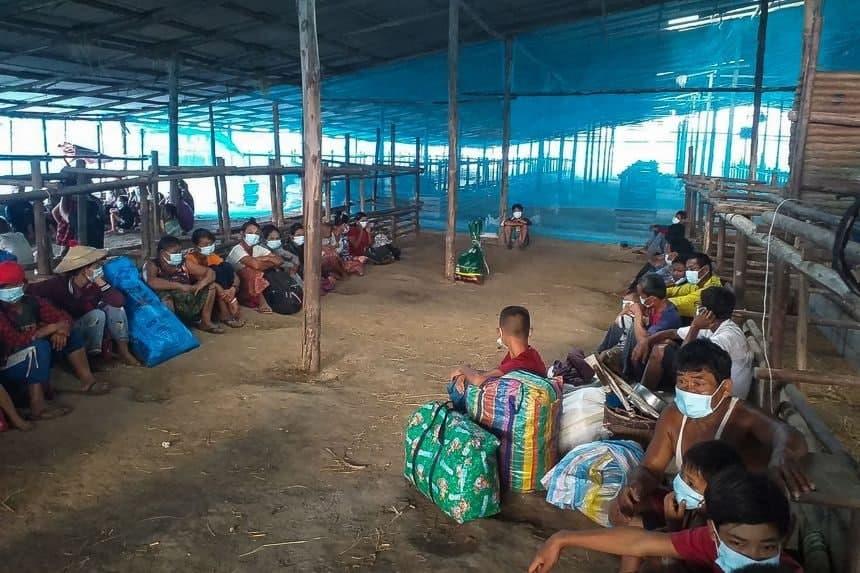NEW YORK, June 24 (Reuters) - An estimated 230,000 people have been displaced by fighting and violence in Myanmar this year and are in need of assistance, the United Nations humanitarian agency said on Thursday (Jun 24).
Myanmar has been in crisis since a Feb 1 coup ousted an elected government, prompting nationwide anger that has led to protests, killings and bombings, and battles on several fronts between troops and newly formed civilian armies.
The United Nations Office for the Coordination of Humanitarian Affairs (OCHA), said relief operations were ongoing but were being hindered by armed clashes, violence and insecurity in the country.
It said 177,000 people were displaced in Karen state bordering Thailand, 103,000 in the past month, while more than 20,000 people were sheltering at 100 displacement areas after fighting between People's Defence Forces and the army in Chin State bordering India.
Several thousand people had fled fighting in northern Kachin and Shan States, regions with established ethnic minority armies with a long history of hostilities with the military.
The Karen National Union (KNU), one of Myanmar's oldest ethnic minority groups, expressed concern about the loss of civilian lives, escalating violence and excessive use of force by the military all over Myanmar.
"The KNU will continue to fight against military dictatorship and provide as much protection as possible to people and unarmed civilians," it said in a statement.
Anti-junta protests took place in Kachin State, Dawei, Sagaing Region and the commercial capital Yangon on Thursday, with demonstrators carrying banners and making three-finger gestures of defiance.
Some showed support for those resisting military rule in Mandalay, the second-biggest city, where a firefight took place between the army and a newly formed guerrilla group on Tuesday, the first sign of armed clashes in a major urban centre since the coup.
At least 877 people have been killed by security forces and more than 6,000 arrested since the coup, according to the Association for Political Prisoners (AAPP), an advocacy group which the junta has declared an illegal organisation.
A diplomatic effort by Southeast Asian countries to end the crisis and initiate dialogue has stalled and the generals say they will stick to their plan of restoring order and holding elections in two years.
